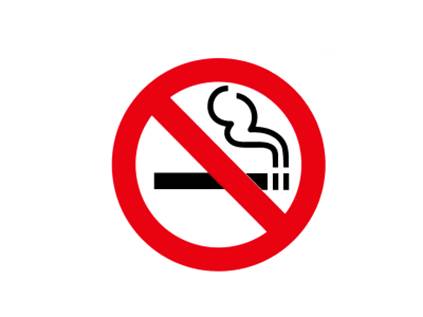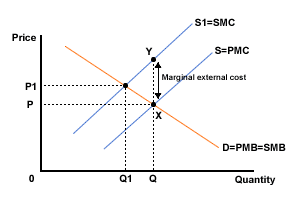Demerit goods
 What are demerit goods?
What are demerit goods?
Demerit goods are goods which are deemed to be socially undesirable, and which are likely to be over-produced and over-consumed through the market mechanism. Examples of demerit goods are cigarettes, alcohol and all other addictive drugs such as heroine and cocaine.
The problem arises from the fact that so long as an effective demand is present, such goods are, in all probability, going to be extremely profitable to produce, and this is all that a price system takes into account - the market neither possesses a 'heart' to enable it to help those in need, nor is it inherently able to make value judgements about which commodities are good or bad for society as a whole: it is prices and profits which act as the 'guiding light' to resource allocation.
However, the consumption of demerit goods imposes considerable negative externalities on society as a whole, such that the private costs incurred by the individual consumer are less than the social costs experienced by society in general; for example, cigarette smokers not only damage their own health, but also impose a cost on society in terms of those who involuntarily passively smoke and the additional cost to the National Health Service in dealing with smoking-related diseases. Thus, the price that consumers pay for a packet of cigarettes is not related to the social costs to which they give rise i.e. the marginal social cost will exceed the market price and overproduction and over-consumption will occur, causing a misallocation of society's scarce resources. This is illustrated in figure 1 below.

Figure 1 Over-consumption of a demerit good
The diagram illustrates how the market fails in the case of demerit goods. At a market price of OP, OQ quantity of the demerit good is consumed, where demand (private marginal benefit) equals supply (private marginal cost). However, at OQ the social marginal cost exceeds the price by the vertical distance XY, the value of the marginal external cost. Social optimality would require a smaller level of consumption at OQ1, where price = social marginal cost = social marginal benefit.
